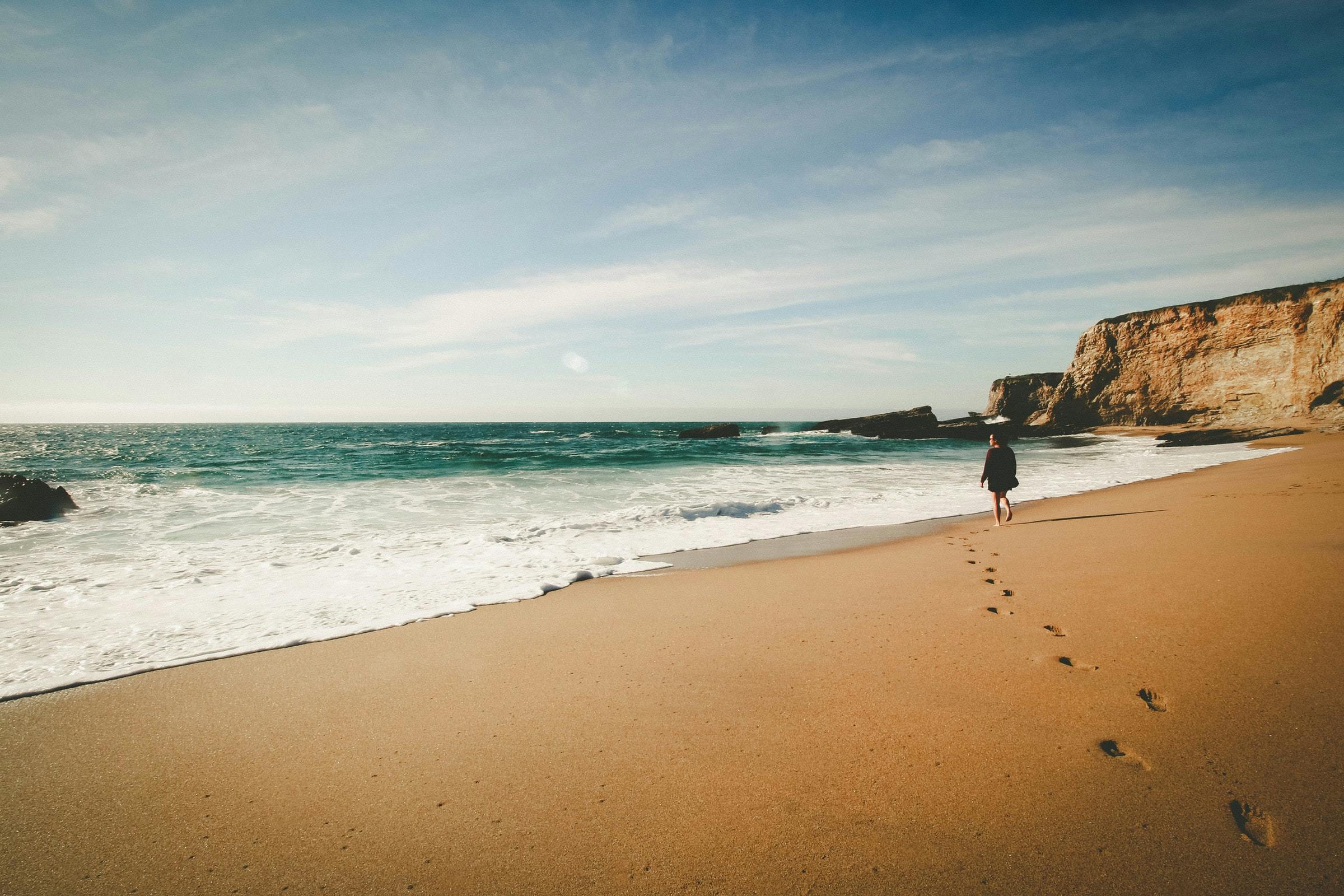It is a strange irony of human ingenuity and industry that we have managed to locate so much of our existence in places where nature is clearly our adversary: cities such as Amsterdam, Berlin, London, Moscow, Toronto. They are places that contributed to the evolution of the modern world, but they are cold, wet and dark for much of the year. For long seasons, we have to swaddle ourselves in several layers of clothing just to step outside. A warm, cloudless day is a rarity, freakish even in the middle of summer; only a few hardy souls will ever plunge readily into open water. In these places, nature is always preaching a hard lesson: unrelenting effort is necessary to stay warm and dry; we must strive endlessly to secure a few cubic metres of shelter; we must always be wary and careful. Here, at the beach, the sunshine warms your oiled skin; the heat gradually releases the tension of the tired muscles in your neck and shoulders; the sky is perfectly blue, with only a few small curls of cloud far out to sea. Soon you might make your way across the hot, white-gold sand to the inviting waves and slip into the clear, warm sea. Later you could move to a recliner under the comfortable shade of an umbrella. You brought a book, but reading doesn’t feel important. You don’t need distraction or stimulation or the thoughts of another. The present moment is enough: watching a sailing boat picking a route through the rocks; observing the changing pattern of light on the headland and the sunshine sparkling on water. The fruit grows abundantly on the trees on the hillside just inland. A tomato salad is more exciting than a wedge of chocolate cake; for lunch you have a sliver of goat’s cheese and some green leaves; you feel light rather than heavy, supple rather than stiff. Towards evening you’ll put on something loose and light and wander over to the old harbour. You might have an aperitif and some olives on the terrace and watch the sunset. The night will be warm; you’ll sit and chat in the courtyard under the stars. It will be lovely again tomorrow; it almost always is here. It is not merely that life at the beach is pleasing to the body; it also offers something profound to the soul. Accumulation doesn’t look so necessary; you’re not storing up for the winter or hedging against disaster. Nature is friendly and inviting, supportive, benign. What’s the point of winning an argument or labouring a point? Why hurry or rush? This, we may feel, is the environment we were made for. Merely contemplating the image keeps alive an important idea: we are often in a kind of exile, and if we are moody or short-tempered the fault might not lie in us, but in an accident of history that has condemned us to live too far from the warm sands and the turquoise oceans. SENSORY MEDITATION - FEEL the sand in between your toes. It’s warm and stimulating; you’d forgotten your feet could be a source of enjoyment. Walk down towards the water and see your footprints being washed away by the gentle waves. - IMAGINE you could come here every day; maybe after work you’d have a quick swim or go for a walk along the sand early in the morning. You’d get to know its different moods: a grey winter evening, a rainy afternoon, a blustery morning. - HEAR the sounds of the sea: the breaking of the waves; the hissing of the water as it comes up the sand and the sucking noise of its retreat; the falling droplets as children splash each other. - IMMERSE yourself in lazy stillness. Stretch out on a recliner and close your eyes. There’s nothing at all you need to do: take a slow breath through your nose, feel the air rushing out over your lips. Pause.










